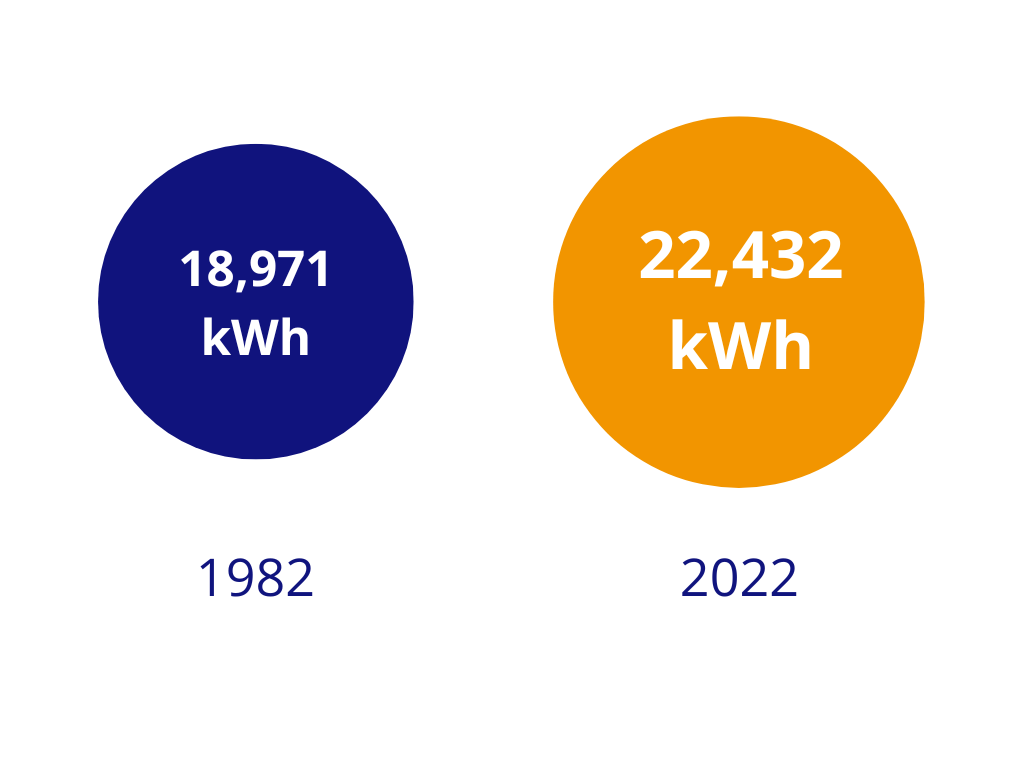Energy insecurity in uncertain times
How to boost the availability, affordability, and accessibility of energy
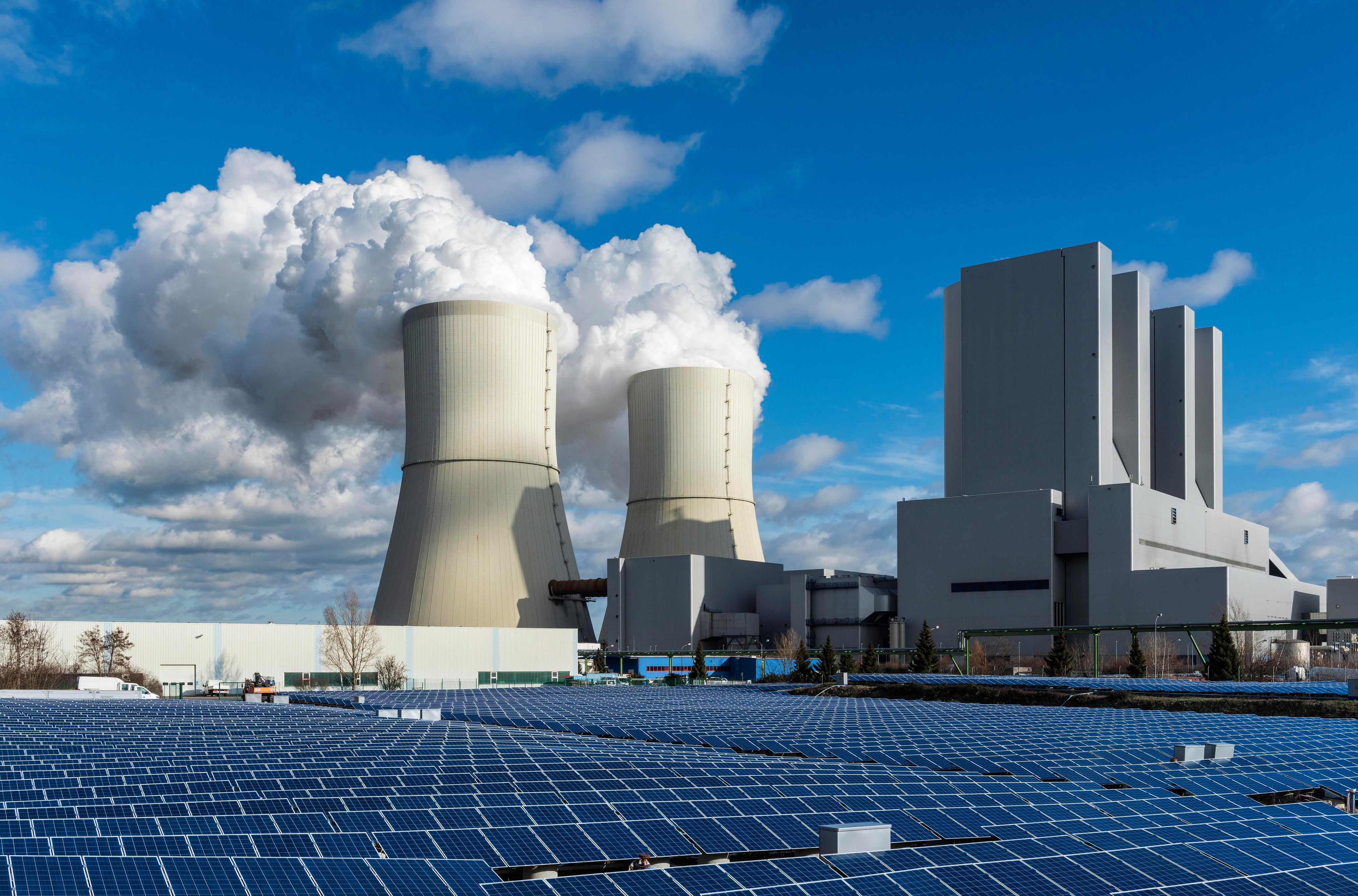
Transport, manufacturing, healthcare, construction, farming, communications, retail, artificial intelligence.
All of this relies on reliable, affordable sources of energy.
We also need energy to heat and light our homes, run appliances, and cook our food.
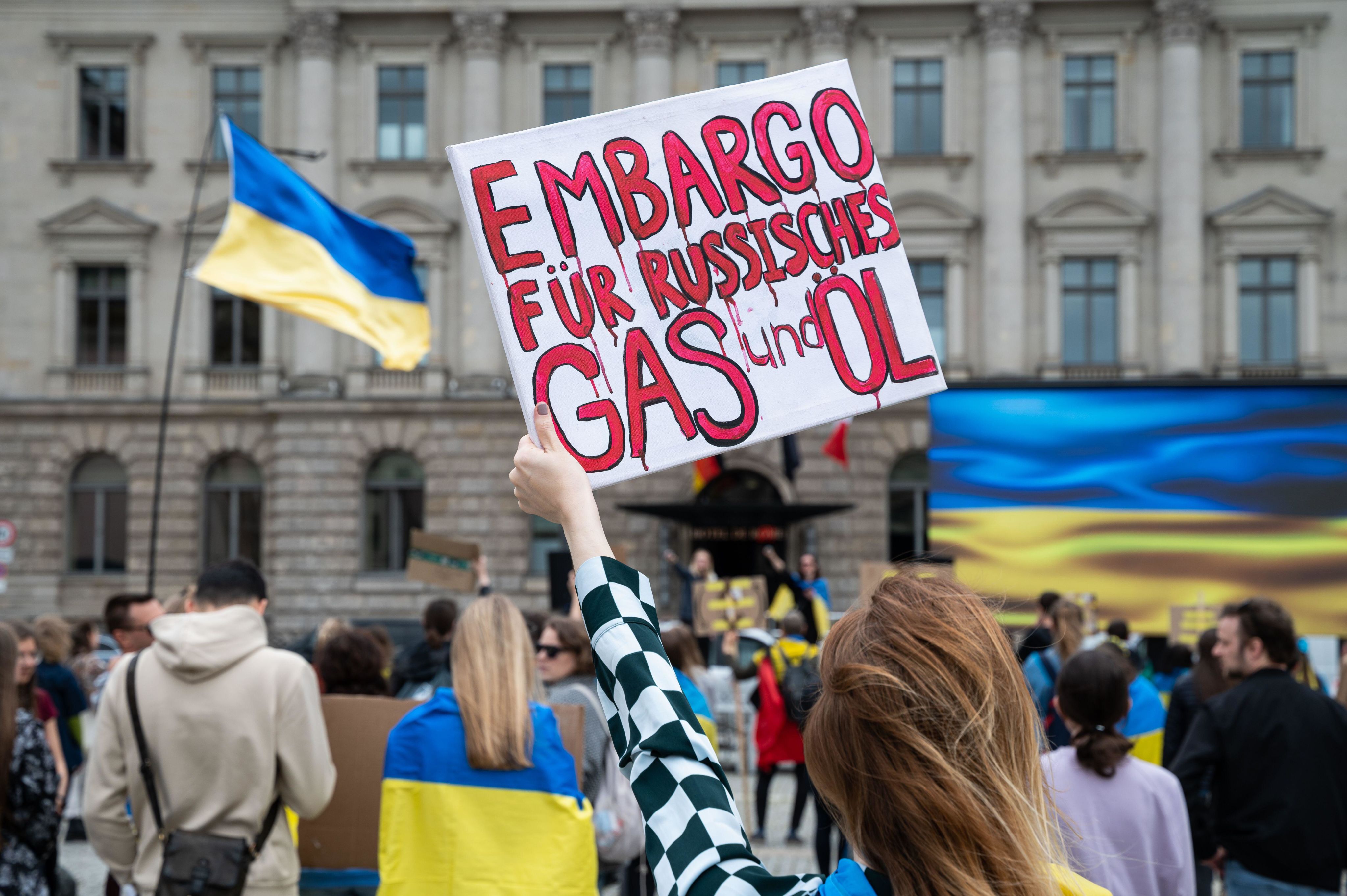

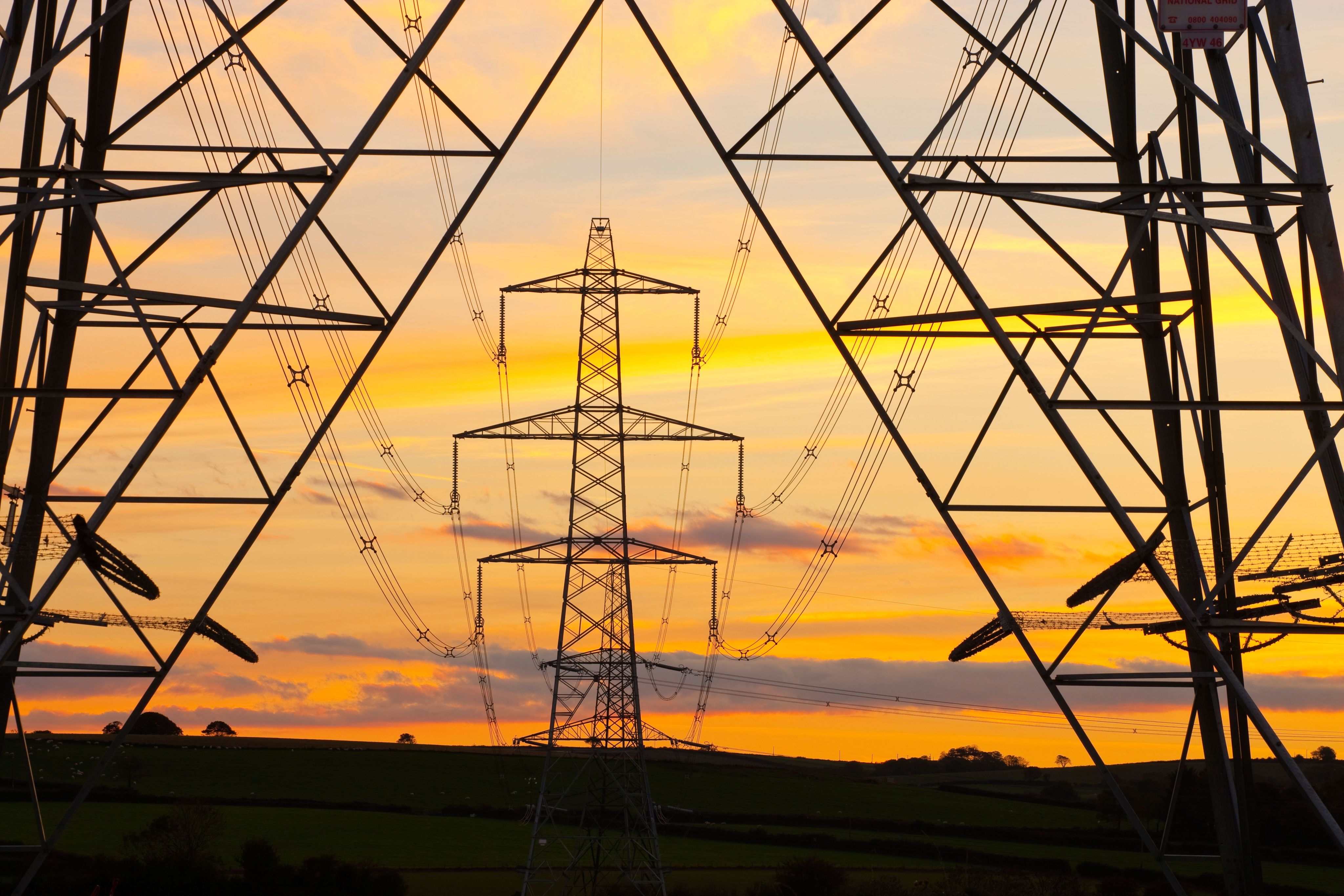
The climate crisis and conflicts such as Russia's war in Ukraine are affecting the systems that supply our energy.
Some of these challenges are contributing to higher energy prices in many regions and an increase in the number of people globally who don't have access to electricity.
Rising demand for energy is also putting a strain on supplies.
Global energy consumption has outpaced population growth and more than doubled in 40 years, from 87,400 terawatt hours (TWh) in 1982 to almost 179,000 TWh in 2022 – that's around 22,500 kWh for every person on Earth, with higher-income countries using much more than low-income nations.
Figure 1: Energy use per person in kilowatt-hours (kWh) – 1982 versus 2022 (sources: Our World in Data and Macrotrends.net)
Figure 1: Energy use per person in kilowatt-hours (kWh) – 1982 versus 2022 (sources: Our World in Data and Macrotrends.net)
All this means that security of our energy has never been so important.
In this article, three leading experts highlight what energy security is and the consequences of energy insecurity.
We also look at what makes an energy source more secure, what factors threaten the security of our energy supplies, and highlight the challenges of transitioning from fossil fuels to other energy sources.
What is energy security?
There are many definitions of energy security. In The Routledge Handbook of Energy Security, Professor Benjamin K. Sovacool highlights 45 definitions from policy and scholarly literature and interviews with energy security experts.
Dr. Victor C. Azubike, Energy and Environmental Law Lecturer at the University of Huddersfield, defines it as "the sustained availability and affordability of energy resources."
"There are two main aspects [to energy security]," adds Dr. Heather Exner-Pirot, Director of the Energy, Natural Resources, and Environment program at the Macdonald-Laurier Institute.
"One is at the consumer level – the ability to enjoy reliable, affordable energy for your transportation, heating, and power needs, whether for businesses or households.
Energy security is the sustained availability and affordability of energy resources
"The other is at the state level – to be able to secure adequate energy sources through markets and not be subject to political manipulation or face unreasonable pressures to do so."
Impacts of energy insecurity
On a state/national level, energy security is vital to the smooth functioning of key sectors of society, and has a crucial role in national security, says Dr. Azubike:
"Many governments prioritize securing energy supplies for citizens and businesses at an affordable price."
"We're already seeing the consequences of poor energy security," adds Dr. Exner-Pirot.
"Poorer countries are getting poorer and thus less stable. Poverty is rising."
On a consumer level, energy insecurity has consequences for individuals and specific groups, says Dr. Xue Gao, an editor of the Environmental Politics journal and an Assistant Professor at the Askew School of Public Administration and Policy at Florida State University:
"Energy security at the household level is an important social and health concern," she says.
Disadvantaged households... are more likely to experience energy insecurity
"It has adverse effects on both physical and mental health.
"For instance, reliance on traditional biomass for cooking, limiting the use of air conditioning during hot periods, and prioritizing energy over essential needs like food and transportation can negatively impact well-being.
"Losing power due to the inability to pay utility bills results in additional reconnection fees, food loss in refrigerators, and an uncomfortable and unhealthy indoor environment.
"Additionally, households experiencing energy insecurity may use risky coping strategies such as burning trash for heating."
And because energy isn't distributed to populations equally, certain demographic groups are more likely to be affected by energy insecurity, says Dr. Gao:
"Economically disadvantaged households, households of color, those living in outdated and inefficient housing, and households with vulnerable members are more likely to experience energy insecurity."
Measuring a nation's energy security
In The Geopolitics of Energy Security in South Asia, Dr. Chowdhury Ishrak Ahmed Siddiky highlights four ways nations can measure and analyze energy security:
1. Availability
This relates to the delivery and supply of energy to consumers. Disruption to energy availability can lead consumers to use less sustainable options such as burning wood or swapping renewable energy sources for fossil fuels.
2. Accessibility
This involves energy transportation and infrastructure. Making energy more accessible is good for communities and economies, but infrastructure such as power lines, pipelines, and power stations can also harm the environment and impact residents.
3. Affordability
This relates to:
- The prices producers and exporters can charge
- The prices consumers can pay
Easy access to fossil fuels often makes energy more affordable but harms the environment.
4. Geopolitics of resource
This looks at how factors such as importer/exporter location, government policies, market demands, and international relations influence the availability, accessibility, and affordability of energy.
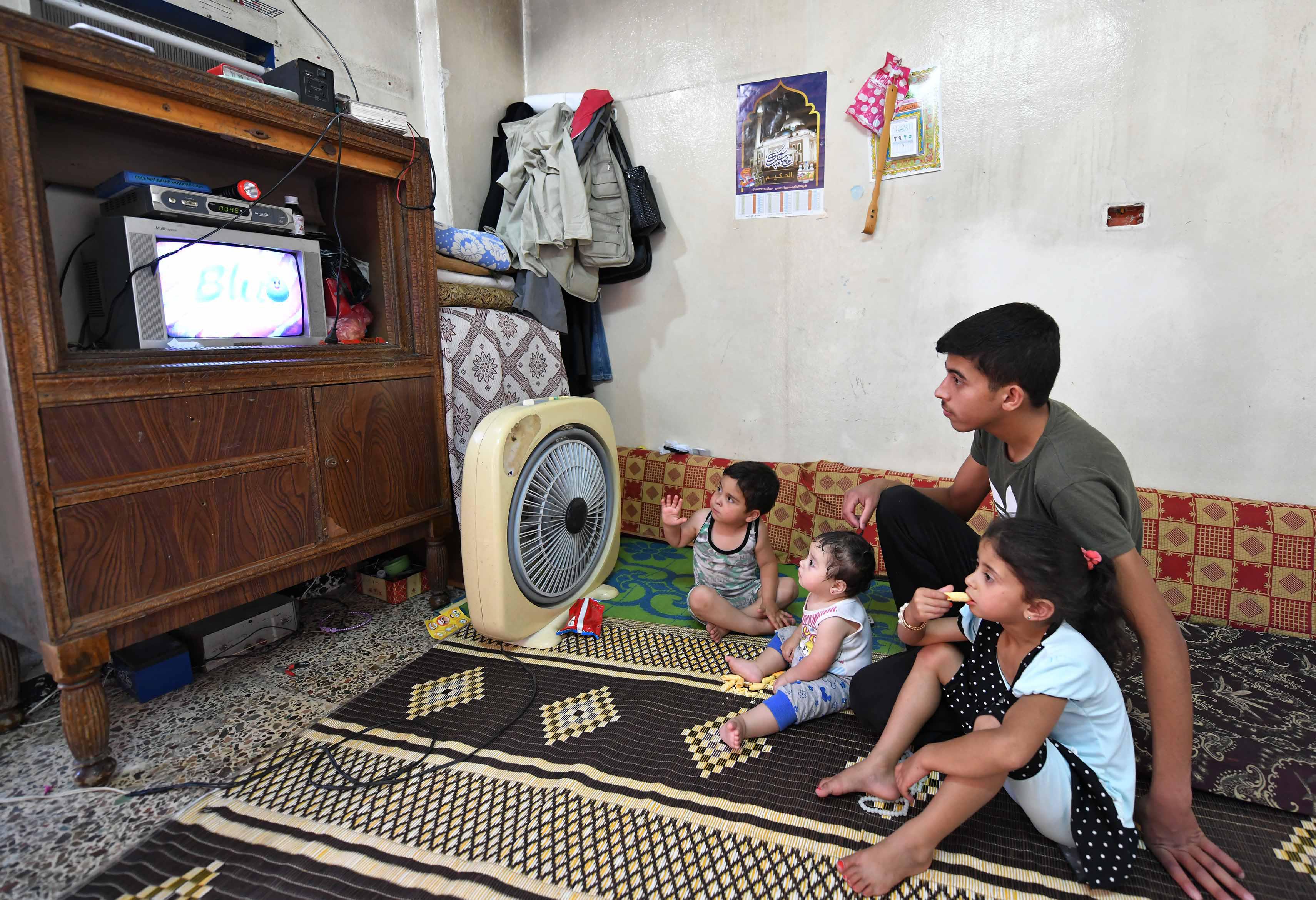
Causes of energy insecurity
Multiple factors threaten the security of our energy supplies.
"A key threat to energy security is the geopolitics of energy," says Dr. Azubike.
"Oil and gas resources are one of the most political commodities worldwide, and many countries rely on regions with an abundance of fossil fuels for the supply of their energy sources."
This means countries with large economies but limited domestic supplies of traditional energy sources – such as Japan and South Korea – are more vulnerable.
"The world on the whole enjoyed quite stable energy security in the past decade or so," adds Dr. Exner-Pirot.
"This was buoyed by the fact that the U.S., after being a huge energy importer, became the world's largest producer of oil and gas following the shale revolution.
Policies to advance an energy transition... are adding additional – and structural – pressures
"That brought a lot of competition and supply into markets and energy was historically cheap."
Then Russia invaded Ukraine.
"The subsequent sanction on Russian supplies put pressure on that stability and affordability," says Dr. Exner-Pirot.
Meanwhile, it's not just fossil fuels that are impacted by geopolitics.
"The shift to renewable energy sources has been argued to protect nations from the volatility of the global oil and gas markets," says Dr. Azubike.
"When a large portion of electricity is from renewable energy sources like wind farms and solar, this is expected to ensure that families will be protected better from energy price rises and volatility of the global fossil fuel industry."
But investing in cleaner forms of energy doesn't always lead to improved energy security, as Dr. Exner-Pirot highlights:
"Policies to advance an energy transition, including restricting investment and production of fossil fuels, and switching to energy systems that are more reliant on critical minerals and Chinese manufacturing are adding additional – and structural – pressures.
"Any 'electrify everything' strategy is deeply concerning to me. Electricity relies on critical minerals, which are relatively concentrated – copper, nickel, cobalt, manganese, lithium, etc. – and uranium for nuclear energy.
"China has near monopolies on processing many of those essential minerals, as well as components of solar panels, and transmission and distribution systems, etc. This adds complexity and risk.
"Already we have seen some countries restricting exports or otherwise leveraging their assets politically – for example, Indonesia and nickel; the Democratic Republic of Congo and cobalt; Chile and Peru and copper; China and rare earth metals. This will be exacerbated in the future.
"I believe climate change is a huge, important problem. But I'm very concerned that in the West we have vilified fossil fuels – which provide 81% of primary energy needs globally – and are actively constraining their production and use without having adequate replacements.
"At the same time, mining is also largely vilified. I think there's some idea that renewables and electric vehicles are 'clean.' But they require enormous amounts of minerals, which require enormous amounts of energy to produce.
"Global mining investment peaked in 2013, and total global mining production peaked in 2019. We are very, very far from producing enough minerals to replace fossil fuels."
Secure sources of energy
What makes a source of energy "secure"?
"Secure and insecure energy sources are relative, and differ from country to country," highlights Dr. Azubike.
"The key factor is whether the energy source is conveniently available to the region with no form of external interference to its supply.
"Currently, fossil fuels – oil, gas, and coal – are arguably the most secure energy sources."
The bottom line is, all energy systems have risks
"Fossil fuels are abundant on every continent," adds Dr. Exner-Pirot.
And their abundance helps make them more affordable.
"Even if many rich nations are net importers of fossil fuels, there is a high degree of competition to provide them and producers must compete on cost.
"Oil is king when it comes to energy supply because it is so simple and versatile. You can transport oil in a gas can, a barrel, a pipeline, or a tanker, at pretty much any temperature on Earth.
"You can have a diesel generator in a shack in Laos or in a mine in the Arctic. It can be used in transportation, heating, and electricity."
What about "cleaner" energy sources?
"Although this is debatable today, renewable energy sources have been viewed as unreliable sources of energy because of various factors such as intermittency, grid integration, and storage," highlights Dr. Azubike.
"However, investing in renewables and having more renewables raises security and lowers cost, therefore protecting a country’s energy market from the volatilities associated with fossil fuel prices."
"Hydroelectricity is a great source of cheap, reliable energy for those lucky enough to have good domestic sources," adds Dr. Exner-Pirot.
"However, exports must be done through transmission, which can be costly and politically constrained.
"Renewables such as wind and solar are also relatively secure once installed.
"My best hope is nuclear energy because it is the least resource and land-intensive, and the supply chain can be sourced wholly from the West.
"The bottom line is, all energy systems have risks and states should pursue diversification and redundancy [using more than one energy source]."
Making energy more secure
There are many opportunities for improving energy security, both on a consumer and state level.
"Programs that increase energy bill assistance and improve energy efficiencies, such as improving insulation and adopting energy-efficient appliances, play a crucial role in alleviating energy insecurity at the household level," says Dr. Gao.
"It is essential to recognize that programs that aim at both short-term and long-term outcomes are important.
"While energy bill assistance provides immediate relief, weatherization programs targeting energy efficiency improvements yield long-term positive impacts."
On a national and state level, Dr. Azubike highlights that the transition away from fossil fuels, driven by the response to climate change, gives governments opportunities to improve energy security:
"Achieving climate change goals will contribute to energy security and lower bills, especially if the government invests in zero-carbon energy, which will improve energy security, affordability, and the climate in the long term."
Programs that increase energy bill assistance and improve energy efficiencies... play a crucial role in alleviating energy insecurity at the household level
However, Dr. Exner-Pirot warns against a hasty move from fossil fuels to other forms of energy:
"I strongly believe OECD [Organisation for Economic Co-operation and Development] countries should ensure some production of oil and natural gas to counterweight OPEC [Organization of the Petroleum Exporting Countries] and Russia.
"Fossil fuels are non-renewable and the United States will very likely experience a decline in oil production this decade. I expect this will have profound impacts on global politics.
"I also think OECD countries should ramp up mineral production, including achieving social license to do so and developing less painful regulatory processes.
"I am very bullish on nuclear energy from an energy security lens.
"You can produce a tremendous amount of energy with relatively small amounts of material input. The trick is managing enriched uranium.
"Similarly, I’m fond of hydrogen for energy security.
"You can produce it from natural gas, which is abundant – and it can be zero carbon with CCUS [Carbon Capture, Utilisation, and Storage] or pyrolysis – or through electrolysis.
"Hydrogen is expensive today but, if nuclear energy gets very cheap, it is a fuel that could theoretically be produced anywhere there is water."
Further reading
Journal articles
- Canada's role in global energy security: practical considerations for a low-carbon transition by Jeff Kucharski and Heather Exner-Pirot in Canadian Foreign Policy Journal
- The energy transition and energy security nexus: an outlook for the United Kingdom by Victor C. Azubike in Journal of Energy & Natural Resources Law
- The impact of renewables on energy security by Matthew Foss in Canadian Foreign Policy Journal
- Winter is coming: Russian gas, Italy and the post-war European politics of energy security by Andrea Prontera in West European Politics
Blogs and insights
Books
- Living with Energy Poverty: Perspectives from the Global North and South edited by Paola Velasco Herrejón, Breffní Lennon, and Niall P. Dunphy (open access)
- Sustainable Energy for All: Innovation, Technology and Pro-Poor Green Transformations by David Ockwell and Rob Byrne (open access)
- The Routledge Handbook of Energy Security edited by Benjamin K. Sovacool
- Understanding Energy Security in Central and Eastern Europe: Russia, Transition and National Interest edited by Wojciech Ostrowski and Eamonn Butler
 China
China Africa
Africa

